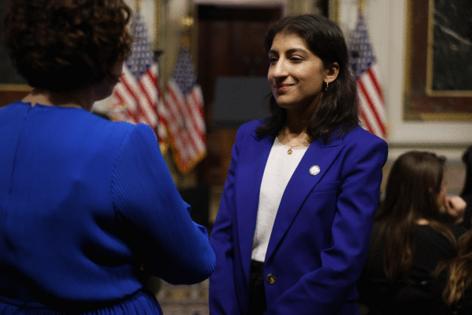FTC issues worker non-compete ban as Chamber lawsuit looms
Published in News & Features
The U.S. Federal Trade Commission voted Tuesday to adopt a near-total ban on non-compete provisions that prohibit workers from switching jobs within an industry, a rule the Chamber of Commerce vowed to immediately challenge in court.
The high-stakes legal showdown comes three years after President Joseph Biden signed an executive order encouraging the FTC to limit non-compete agreements, which affect roughly one in five Americans.
“Robbing people of their economic liberty also robs them of all sorts of other freedoms,” Chair Lina Khan said Tuesday. Arguing that the FTC lacks “rulemaking authority requires ignoring the most straightforward reading of the” law.
“We need to be honoring what courts have said over what courts in the future might say,” she added.
The antitrust and consumer protection agency voted 3-2 to issue a final rule Tuesday after a nearly hour-long debate in an open meeting of the FTC’s five commissioners. The proposal would ban most new non-compete agreements including those of senior executives.
Existing non-competes for executives who earn more than $151,164 a year in a “policy making position” can remain in place.
Existing non-competes with lower-level workers would become unenforceable after the rule goes into effect in six months. The agency estimated that it would increase U.S. earnings by at least $400 billion over the next 10 years. The rule wouldn’t apply to employees of not-for-profit entities or franchises.
The Chamber of Commerce, the nation’s largest business lobby, earlier told reporters it plans to sue over the rule as soon as Wednesday.
Union backing
The FTC first proposed a non-compete ban in January 2023, arguing the restrictions unfairly block workers from switching jobs and undermine labor competition. The proposal has the backing of labor organizations AFL-CIO and the Service Employees International Union, Democratic senators and attorneys general from California, Illinois and 17 other states. Of the 26,000 public comments the FTC received about the proposal, the agency said that 25,000 of them were in support of a ban.
...continued
©2024 Bloomberg L.P. Visit bloomberg.com. Distributed by Tribune Content Agency, LLC.







Comments